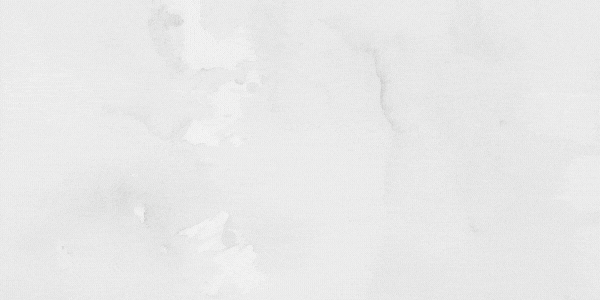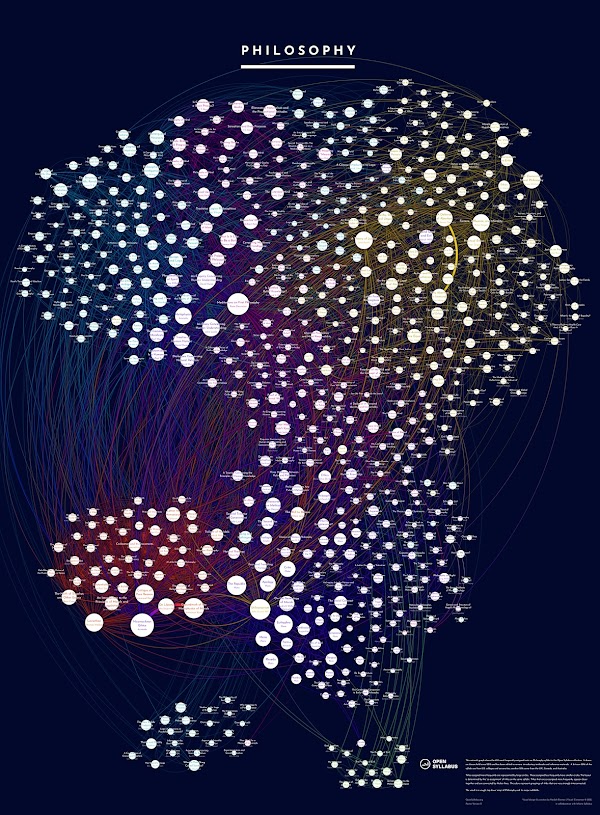
These functions often conflict. And then we have to weigh them against each other. And my worry is that sometimes, we educators act unthinkingly. We teach the way we ourselves were taught, and don’t think about the actual function of our inherited pedagogy.
I expected them to say: give Dennis the B, because you’ve got to be fair. But what they actually said was: “Well, it depends a lot on the specifics of the situation. But, in many circumstances, the right thing to do is give Dennis the B+, because the educational signaling function of grading is often more important than strict fairness.”
Teacher, Bureaucrat, Cop
by C. Thi Nguyen
Why did we need these precise comparisons anyway? It’s useful, here, to consult the history of our modern, standardized grading system. According to the historians, our modern system of grading was set up to perform a few different functions. One is motivational: the clarity of grades gets students to work. (Although, as many have noticed, it often motivates them to narrowly pursue only those things which will advance their grade.) But the main interest driving the grading system is informational portability. Grades transfer information quickly between contexts. This transfer can have some educational function. Educators can use it to sort students into different classes based on past performance, and do impact studies on educational interventions. But a dominant use for standardized grading is for employers. Much of modern grading arose around during the creation of systems of standardized certifications, designed for employers to quickly sort through pools of potential employees.
“We can free ourselves up to pursue a wider range of educational goals when we see that fairness is not an absolute demand for all classroom life, but only one goal among many. And sometimes, we can trade away some degree of fairness in the pursuit of other goals.”
This line of thinking has opened up all sorts of new possibilities in my teaching. For one thing: I started writing these open-ended, funny final exam questions in my intro classes. The questions have a lot of room built in for student improvisation. Like: “Choose any two philosophers we’ve studied and stage a debate between them about the value of Instagram culture.” Or: “Choose any philosopher we’ve studied and say how they would redesign the educational system.” Students often leave the final exam delighted; I hear them arguing about the ideas in the hallways afterwards. Students tell me they didn’t know a final could be fun.
I was teaching a first-year “great books” seminar, doing the Tao Te Ching. During the class discussion, I asked my students to imagine what a truly Taoist school might be like. They said: there would be no central authority figure. There would be no grading. Students could pursue whatever paths interested them. There would just be resources available for them to explore, to play around with. I asked them why our educational system wasn’t like that. They said: it must be because our educational system was more about evaluating them, getting them to fall into line, then about actually helping them grow and develop.
It is tempting, when faced with decision points like this, to just default to worrying about fairness. Even for those who deeply wish to be teachers, it is so easy to go full cop or full bureaucrat. It can seem inevitable. In our educational culture, the demands of fairness are often presented as paramount. But we actually have a choice—between policing our students, and teaching them.
Fair evaluation is not the only goal of an educational system. You could have an educational system without comparative evaluation. Each student could submit a piece of writing to me, and I could tell them their strengths and weaknesses. I could suggest ways for them to improve. I could help my students become engaged, more interested, reflective, more careful thinkers. I could even tailor my suggestions to their goals and interests. None of this requires a fair comparison between students.
The function of teacher is to educate and improve their students. To give them knowledge, grow their skills, charge up their critical thinking, train their intellectual virtues—anything like that.
Then I remembered a thought that had been implanted in my head way back in grad school. I’d been in the “how to teach” class for first-time teaching assistants. One of our faculty was talking about the purpose of grading. They said: “Imagine that you’re grading. You give both Dennis and Kate a B on their first papers. But after you’ve sent out the grades, you realize you’d made a mistake. On further inspection, Dennis’ paper is actually worse than Kate’s; he actually deserved a B-. Now their second papers come in, and both Kate and Dennis improve a bit on their second paper. Now what grade do you give them? If you value fairness, you should give Kate’s paper a B+, and Dennis’ second paper a B—the grade it deserves and that’s in line with the grades for the rest of the class. But then you won’t be performing another vital function of grading. You won’t be signaling to Dennis that he has improved; you won’t be visibly rewarding his increased effort and skill. Fairness here asks you to give him a B, but many of our other educational goals say you should give him a B+. So what should you do?”
This blew my mind. Because I had never actually separated out those two functions before. There was just this one edifice in my mind: grading. And the presumption was that grading always had to be maximally fair, that that was what the whole thing was for.
These choices serve the functions of the bureaucrat and the cop—but not, I think, the teacher’s. Because the environment they are suggesting—an environment of surveillance, paranoia, and profound distrust—is deeply hostile to some of our subtler educational goals. It is hard to turn in a creative expression, to really reflect on your values and world-view, if you have to write your essay in a single session in a monitored testing center under a camera’s baleful eye. Going full surveillance may catch some cheaters, but at the expense of providing a richer, more supportive educational environment for the rest of our students.
More importantly: for a student not headed into the academy, a significant emphasis on proper citation style communicates an underlying value of obedience for obedience’s sake. Because, for most of our students, citation formats are a useless piece of knowledge. Proper citation has no relationship to their interests—professional or personal—and no relationship to the development of general intellectual or critical faculties. It’s just a bunch of rules that we enforce, not because it’ll actually help the student, but because they’re the rules. And students know this, deep in their hearts. They know that they’re bowing down to a set of irrelevant norms, because that’s what they have to do to get the grade. When we push this stuff on our students without any heed to the educational function, we’re being cops.
The difference between the bureaucratic function and the teaching function is subtler. The core question is: to what degree does the process of fair evaluation serve the goals of education?
They were getting super excited. Then one of my students said: “Professor? Could we do that? Could we just do whatever final project we wanted?” The whole class was vibrating with enthusiasm. My syllabus had the usual final term paper programmed in, but the students were boiling over with other ideas. An animation student wanted to animate some of the poems we’d read; a women’s studies student wanted to write a feminist updating of “The Wife of Bath’s Tale”.
It’s important to be clear about which functions we are serving, and to be deliberate in making the trade-offs. And there’s a big decision point coming. My Twitter feed is full of professors and teachers freaking out about the coming of GPT-3. Clearly, some students will start to cheat using automated paper-writing. People are proposing responses that involve going full surveillance state. They have proposed making students write their papers with eye-tracking software on, or writing all papers in controlled and secure environments, like testing centers.
(This isn’t a claim about everything it is to be an actual bureaucrat, or an actual cop. These are just my internal labels to help me think through my different job functions in the classroom.)
I could open up the final assignment in that honors seminar precisely because that class wasn’t intended to teach the skill of rigorous argument or careful writing. It was intended to expose students to the riches of “the great books”. So in that context, opening up the final project made sense. I’m not saying that we should never give standard final assignments—the decisions depend a lot on the specifics of the situation. I’m just saying that there are sometimes reasons to move away from the demands of fairness, and the standardization it enforces. The real point is: fairness is only one of our functions. We can free ourselves up to pursue a wider range of educational goals when we see that fairness is not an absolute demand for all classroom life, but only one goal among many. And sometimes, we can trade away some degree of fairness in the pursuit of other goals.
This can include open authoritarian bullying, but it also includes much milder-looking, but more pervasive, choices. For example: spending significant resources, in a general education class, on teaching and enforcing proper citation style. In many classes, absolute obedience to the details of a particular citation format becomes a basis for grading decisions.
The following is a guest post by C. Thi Nguyen, Associate Professor of Philosophy at the University of Utah. It is part of the series of weekly guest posts by different authors at Daily Nous this summer.
The benefits are clear to me. Students get to exercise their creativity. They get to feel intellectually autonomous, to integrate material with their own interests. And they get to leave the class—sometimes their only humanities class—with a sense that this kind of humanistic, philosophical thinking is alive, delightful, and applicable to their actual lives. But, to accomplish all of this, this style of exam trades away a bit of fairness.
The function of bureaucrat is to fairly evaluate the students. It is to offer some relatively objective assessment and ranking.
This tension between fairness and education shouldn’t be reduced to something so simple as, “Who am I serving—the student or the employers?” (Though, I admit, that reduction is awfully tempting.) The real point here is that issuing fair evaluations is just one particular function among many, for the instructor. Though fair evaluations have some educational use, they are not the end-all and be-all of education.
Along similar lines: lately, I keep seeing teachers march in the streets against the tyranny of the cops, and then, in their own classrooms, go full cop. ACAB in the streets; cop between the sheets.

Does this serve any deep educational function? At the intro level, rarely. It’s not a skill that the vast majority of our students actually need. (You might think that making students cite a page number in texts helps them learn a certain detail orientation, but there’s a big difference between that, and, like, getting all your punctuation right in proper MLA citation style.) Where does the obsession with citation style come from? More than one composition teacher has suggested to me that it comes from the drive for objective grading. It is incredibly hard to justify, in a bureaucratically defensible way, a grade based on creativity or incisiveness of a student paper. But a grade based on obedience to a set of explicit rules is objective and unimpeachable—and easy to process at volume.
Was this a teaching success or a teaching failure? What the students gained here was the ability to integrate what we were doing with their own career paths, their own animating values. They got to exercise their creativity and their intellectual autonomy. What I lost was the ability to grade with anything like perfect fairness. And I came out thinking not that fairness was entirely unimportant, but rather that there was a complex tension here, a trade-off between different values—and that in the past, I had unthinkingly gone all-in for fairness and left other pedagogical values on the wayside.
And I froze. Because how the hell was I supposed to grade this stuff fairly? I didn’t want to just point-black refuse, but how in god’s name could I issue meaningful grades to an animated movie, a critical paper, and a film script? We’d been extolling the virtues of creativity and open-mindedness, originality and adaptability, and here I was about to embody the bureaucratic authoritarian. I was about to tell them: “You cannot do this thing that you love and are excited by, that actually integrates with your life path and goals. Because I could not grade you fairly.”
This has been on mind recently, because the pandemic forced a rapid transition to online teaching; many of us had to make implementation decisions which revealed our actual priorities. I got to watch professors, who taught about Foucault and control—who preached about the dangers of the surveillance state—turn around and go full surveillance. When it was time to start administering tests at home, in the Zoom era, they said yes to every bit of eye-tracking technology, used every bit of surveillance they could take their hands on. The damage that heightened surveillance did to the environment of trust—and the whole dense emotional life of education—was far less important, it seemed, then making absolutely sure that nobody cheated.
The function of cop is to enforce the rules. Perhaps the kinder way to put it might be that the cop functions to maintain the current social order. Though, in some cases, the way to maintain the social order is to inculcate a sensibility of pure obedience to the letter of the law.
Which is not to say that the exam is aggressively unfair. I can still get a good sense of whether they understand the material vaguely or deeply. But it is quite difficult to make precise comparisons between students because the task is more open-ended. When they get to choose any philosopher from the class, or, say, pick any law to rewrite from according to their choice of political theories, they can end up in every different places. The freedom in the task lets students select, or stumble into, tasks of varying difficulty. In this case, for me, the trade is worth it. I care more about giving my intro students, as their last taste of philosophy, a chance to exercise some creativity and intellectual autonomy, than I do about perfectly precise grading.[1]
So I let them design their own final projects: whatever format they wanted, so long as it engaged with the class material in an interesting way. I had them pitch me their ideas, and we negotiated a project that would satisfy both of us. And what I got was completely amazing. About a third of the students did the standard term paper. The rest went wild. I got a short film, and a podcast about Homer’s concept of heroism. A ceramicist tried using traditional Japanese ceramics methods that she’d never used before, and kept a diary, informed by Japanese aesthetics texts we’d read. The women’s studies student gave me a (sharp, hysterical) screenplay updating the Wife of Bath, called The Wife of Wall Street.
So here’s what I’ve been thinking: the job of a class instructor actually encompasses a number of separate functional roles. Privately, I call these functions “teacher”, “bureaucrat”, and “cop”.
[1] Rima Basu does something even more profound. She offers students a choice between a more traditional academic writing in her classes, and a “public writing” track, where students output op-eds, blog posts, and even podcasts. Yet another case where offering more educational integration with students’ interests is in tension with the goal of perfectly fair evaluations.





